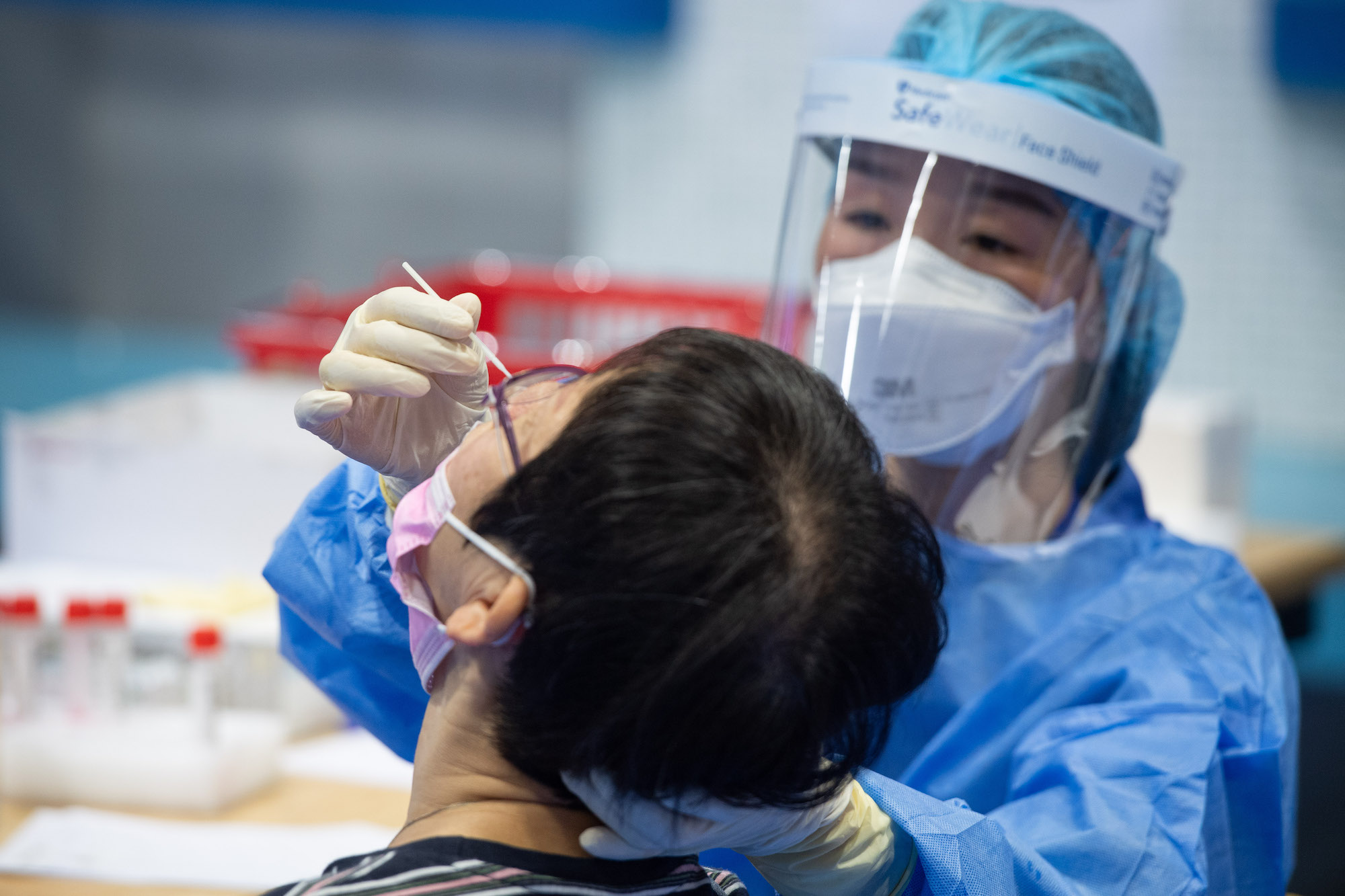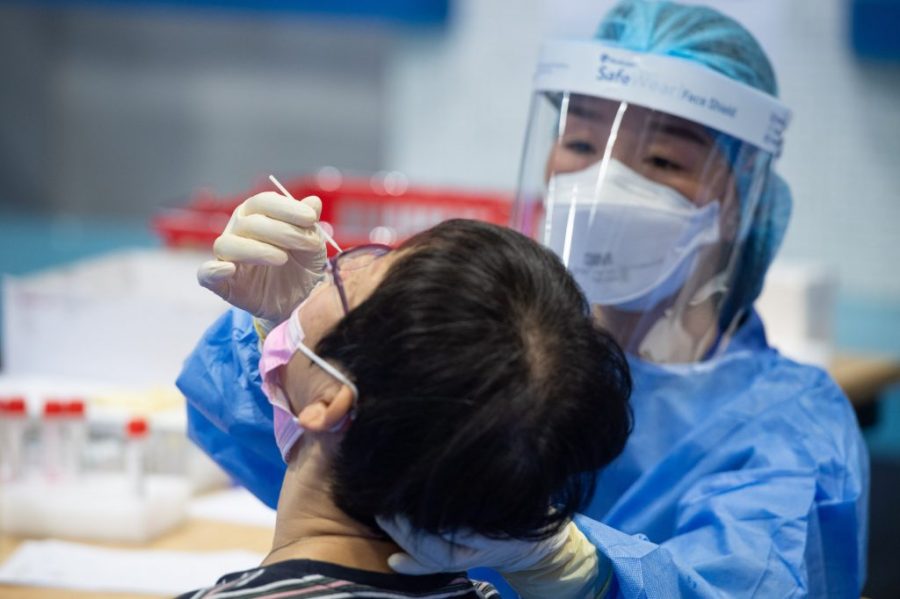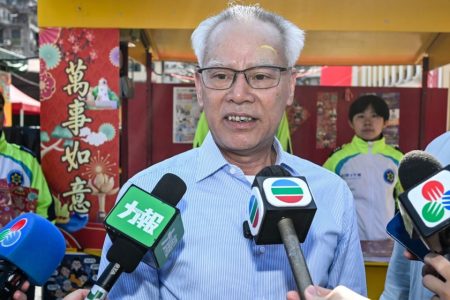Almost all of the city’s indoor workers will have to be tested weekly for Covid-19 if they have not been inoculated, Tai Wa Hou, a clinical director of the Conde de São Januário Hospital Centre has announced.
Those subject to the new measure will have to pay for the regular tests themselves. The ruling applies to both the public and private sectors.
Tai said that the Health Bureau (SSM) published new guidelines yesterday on Covid-19 vaccinations and nucleic acid testing (NAT) for “all staff members” in the city, as the Covid-19 pandemic has become increasingly serious.
Inoculation can effectively reduce the risk of infection and – in case of still being infected despite having been inoculated – reduce the risk of transmitting the disease to others.
According to Tai, the new guidelines state that “all staff members” have the responsibility to be inoculated against the novel coronavirus so as to prevent Covid-19 transmissions in the workplace.
If infected with Covid-19, the new guidelines state, those in contact with service users during their work or those who share a “confined” workplace with others can easily transmit the novel coronavirus to others.
Consequently, all staff members who have not been inoculated should undergo a Covid-19 nucleic acid test every seven days, or even more frequently.
According to Tai, the respective public and private entities, will have to take their own measures so as to implement the new guidelines in due course, adding that they can consult the Novel Coronavirus Response and Coordination Centre about the new requirement when necessary.
Tai said that the required frequency of the nucleic acid tests for those who have not been inoculated will depend on their respective occupations. Tai said that the respective public or private entities will have to draw up their own specific rules that enable them to implement the new measure that is required by the guidelines published by the Health Bureau.
For occupations and workplaces whose operation is overseen by a particular public entity, for instance the restaurant sector which is overseen by the Municipal Affairs Bureau, it is the respective public entity that will have to draft specific rules so as to get the new measure off the ground, according to Tai.
Other companies or businesses whose operations are not specifically overseen by any particular public entity will have to draft the rules themselves in order to start the new measure, Tai said.
According to Tai, the public or private entities concerned will have to come up with their own timetable as to when the new measure will be implemented for staff members in the respective occupations or working in the respective workplaces.
Tai added that the Health Bureau has not set a specific deadline as to when the public or private entities will have to complete drafting their own rules to implement the new measure.
Tai merely said that there will be a transition period for the respective entities to prepare for the implementation of the new measure, adding that they can contact and discuss with the Health Bureau to decide their own timetable.
Tai reaffirmed that the new measure aims to ensure workplace safety, as those who have not been inoculated against the novel coronavirus will carry a higher risk of Covid-19 infection or transmissions.
“All staff members have the responsibility to ensure that their workplaces are safe and their service users will not be infected,” Tai said.
Tai warned that all those who cause Covid-19 transmissions due to their failure to comply with the new guidelines might violate the Law on the Prevention, Control and Treatment of Infectious Diseases, regardless of public entities regulating the respective occupations, companies or staff members.
Tai said that the number of staff members to be covered by the new measure will depend on the upcoming evaluations to be carried out by the respective public entities regulating different occupations and workplaces.
Tai said that the government will not pay for the required Covid-19 tests under the new measure. “Of course, some private institutions could possibly come up with certain solutions to arrange for their staff members to undergo the nucleic acid tests,” Tai said.
Asked whether the two criteria laid out in the guidelines published yesterday mean that even administrative staff members working in an office will also be subject to the new measure, Tai confirmed that almost the entire working population in the city will be covered by the measure, except for very few people such as freelancers.
“Most indoor workplaces are really confined workplaces. All those working here together with their colleagues could spread the virus to others if they have not been inoculated against Covid-19, despite not being in contact with any service users. Consequently, they also have the responsibility to be inoculated,” Tai said.






